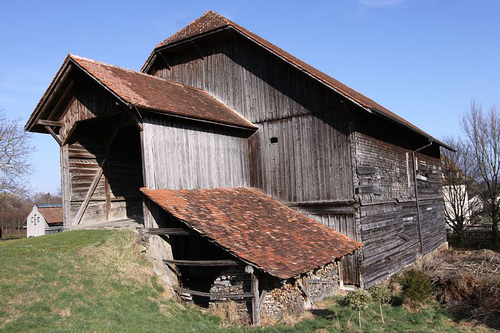Keeper of the Breadbasket
Overview
This Imperial title was created by the Senate during the Autumn Equinox 381YE to oversee the function of the granaries and storehouses in Mitwold and Upwold that make up the Imperial Breadbasket. Prior to the creation of this title, decisions about the Breadbasket were made by the Marcher senators - now such decisions would be made by the Keeper instead.
Responsibilities
The Keeper is responsible for the great work known as the Imperial Breadbasket. The breadbasket on the whole requires little effort to maintain, being largely run by the civil service. If the structures that make it up were to be threatened in any way, however, it would be the responsibility of the Keeper to deal with those threats. Likewise, if any particular opportunity were to arise related to the Breadbasket, the Keeper would expect to be consulted as to how that opportunity might be resolved.
Benefits
The existence of the Breadbasket boosts the income of every farm in Bregasland, Mitwold, and Upwold. It provides an additional 36 rings to each farm in the territories, regardless of curses and other effects that impact their harvests.
The presence of this great work in the Empire also provides a "safety net" to the Imperial armies. If a nation of the Empire is unable to support their armies (because of a powerful curse or because they have lost a territory, for example), then the Keeper of the Breadbasket can opt to direct the bounty of the Breadbasket to support them. This natural decay of all its armies and navies is then halved. The silos can only support a single nation in this way - if a second nation were to have more armies than it could support, then the Keeper of the Breadbasket would need to choose which nation to assist. The grain stores do not allow an Imperial nation to build more armies than it can support.
Powers
Right of Address
The Keeper of the Breadbasket has the right to make a Senate address once per summit. This is intended to allow them to present important information for the senators consideration. To make an address, the Keeper must inform the Speaker for the Senate of their intention, so that the Speaker can add the address to the agenda for the next Senate session.
When the title was created, an attempt was made to require that the address be used whenever the Keeper sought to exercise their power to determine how the benefits of the Imperial Breadbasket may be applied, but this was deemed unconstitutional. It is not possible for the Senate to dictate how a power such as the right of address can be used.
Distribution of Imperial Bounty
The Imperial Breadbasket can be used to support a single Imperial nation whose armies are suffering from insufficient supply. To use this ability, the Keeper must make an announcement in the Imperial Senate to indicate which nation the Breadbasket will support. When this happens then the natural decay of all its armies and navies of that nation is halved.
The silos can only support a single nation in this way - if a second nation were to have more armies than it could support, then the Keeper of the Breadbasket would need to choose which nation to assist. The grain stores do not allow an Imperial nation to build more armies than it can support.
If a wind of fortune includes an opportunity for the Keeper of the Breadbasket to make a material difference by changing the distribution of Imperial bounty, then this will be explicit in the text. In this case, the Keeper will need to use their Senate announcement to indicate what response they are taking.
No voting is possible by the Senate at this point, as the power has been delegated to the Keeper of the Breadbasket. The Synod may, however, choose to exercise their veto over the Keeper's decision.
Appointment
This title is appointed during the Winter Solstice by unanimous decision of the senators of the Marches. If a unanimous decision cannot be reached, the title may be appointed by the Senate instead.
The title can be held by a citizen of the Marches. The Keeper can be revoked by the General Assembly, the Marcher National Assembly, and by the Assembly of the Nine.
| Summit | Elected |
|---|---|
| Winter Solstice 386YE | Orson BogMyrtle |
| Winter Solstice 385YE | Thatcher Grayson |
| Spring Equinox 385YE | Thaddeus |
| Winter Solstice 383YE | Lily Guildenstern |
| Winter Solstice 382YE | Lily Guildenstern |
| Winter Solstice 381YE | Rowan Merrick |
Recent Elections
This title is currently held by Orson BogMyrtle; it will be reelected at the next summit. The table to the right shows the citizens who have been elected to hold this title in the years since Empress Britta died.
History
The three northern territories of the Marches - Bregasland, Mitwold, and Upwold - are dotted with public buildings referred to as a whole as the Imperial Breadbasket. These granaries, barns, warehouses, gain silos, and storage houses are maintained by the civil service, and overseen by the Keeper of the Breadbasket who makes any important decisions regarding their bounty. They exist to ensure that the farms of the Marches are prepared to meet any potentially disastrous setbacks such as poor harvests or wide-scale curses. They were completed just before the Spring Equinox 381YE. Any Marcher farm-owner can make use of their services, and at a reasonable price. The great work they represent was created as a result of the disasters that beset the nation in 379YE and 380YE.
The disastrous failure of the Autumn harvest in 379YE was followed by a particularly harsh winter during which the farmers of the Marches suffered significant losses in order to keep the Imperial armies marching. Then the Spring 380YE planting was hit with torrential rains and a vicious blight that devoured many of the seeds before they can be put in the ground. While the rest of the Empire was enjoying a burst of vitality and fertility, the farms of Bregasland, Upwold, and Mitwold were once again labouring under the yoke of a vicious magical curse that ruined the crops, sapped the life from the beasts in the fields, and spread sickness and hunger wherever it touched.
Next came the catastrophic news from the Mourn. Across the Marches morale was low, and tempers frayed. But surrendering in the face of hardship is not really in the Marcher psyche. Rather than turn on each other, the Marchers helped their neighbours - grumbling and complaining all the while, and making it clear their aid was a loan and not a gift.
The plan to construct the Imperial Breadbasket began in the markets of Meade and received immediate support from many of the market towns. The call went out for the construction of a great work, a network of granaries and storage barns, coupled with the creation and cultivation of stocks of seed to be made available to all for a modest price in the face of blight, harsh weather, or similar disasters. Meade has long since grown past the point where it can feed itself. It relies on a steady influx of grain, meat, milk, and cheese not just from Mitwold, but from across the Marches. Its prosperity relies on trade routes supported by well-fed and healthy merchants selling food and metal and wood produced by labourers who are not starving to death. The rest of the market towns are in a similar situation - and recognise a simple truth. When the farmers starve, everyone starves. The alders put their hands in their pockets - but not as a gift, or as charity, but as recognition of the fact the Marches - and the Empire - prosper when the farmers prosper. It was an investment for the future, as well as an effort to "darn the rip" between the folk of the market towns, and the rest of the Marches.
The project required the support of the Senate, and it was not cheap. In the end, even with the assistance of the market towns, building granaries and seed stores for Bregasland, Mitwold, and Upwold still required 100 wains of weirwood and 40 wains of white granite, plus labour costs of 35 Thrones. In the end the project was commissioned in Summer 380YE, and work completed shortly before the Spring Equinox 381YE.
The benefits to the farm owners of Bregasland was lost when Mathilda Fisher and her Jotun allies conquered Bregasland. The granaries and storage barns went towards supporting the Jotun armies until the territory was reclaimed and the barns restocked.
The Mournwold
As of the Summer Solstice 386YE, the network of granaries and storehouses only covers Bregasland, Upwold, and Mitwold. Expanding the great work so that it includes the Mournwold is certainly possible. It would require a commission as for any other great work, and would require 35 wains of weirwood, 15 wains of white granite, 150 crowns of labour, and take six months to complete (assuming no other great works were built improving investment in farms in the interim). When finished, it would grant every farm in the Mournwold an additional 36 rings each season. It would fall under the custodianship of the Keeper by default.
The Title in Play
The role does not provide additional information about events in the Empire, nor allow the player holding it to request special reports or downtime actions. These details are assumed to be below the abstraction layer. The title holder is encouraged to create their own stories about their activities within reasonable limits and to get involved in events appropriate to their title during the game, but they do not have any powers beyond those explicitly listed in the section on powers.
These details exist partly to provide context and character to the role - and partly to allow our writers to use the title as a plot hook. Plot that involves the position will be rare - but all the campaign positions in Empire have these details to create the potential for it to happen.

